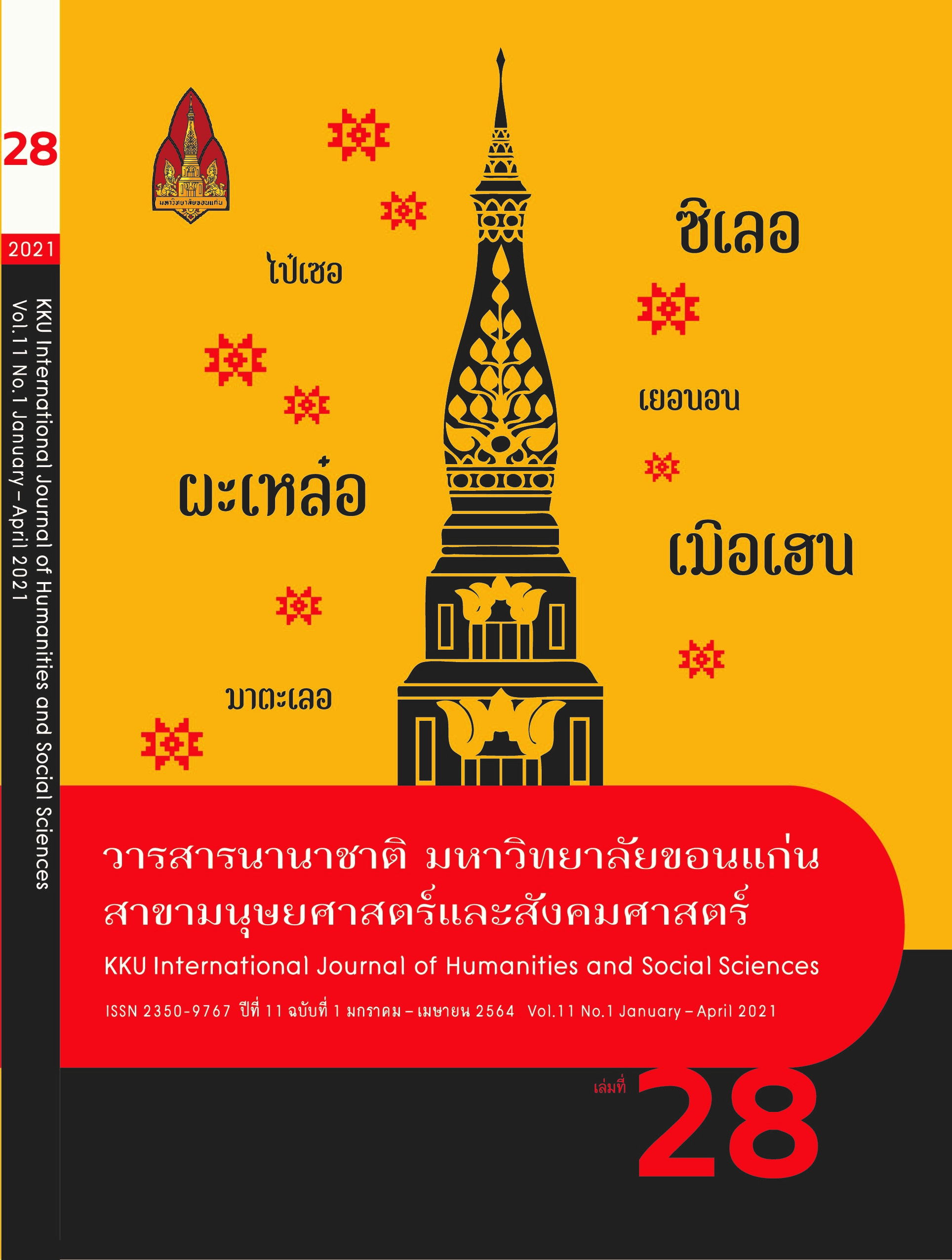The Developing a Project Learning Pattern Using ICT to Promote Cognitive Ability Education System for Students, Faculty of Education Phetchabun Rajabhat University
Main Article Content
Abstract
The main purposes of this study 1) To develop a project-based learning model using ICT for students, Phetchabun Rajabhat University. 2) To study compared the systematic thinking ability for students, Phetchabun Rajabhat University. 3) To assess the satisfaction of using the project learning model by using ICT for students, Phetchabun Rajabhat University.
This research consisting of 4 steps as follows. Steps 1: Study of basic information about project-based learning model using ICT and abilities to systems thinking. Steps 2: Creating and checking the quality of the learning management model. And prepare a manual form of learning. The instrument used to collect data. The ability to learn systems thinking. Steps 3: Trial results of the study and management style learning projects using ICT as a research base using conventional One-Group Pretest-Posttest Design. The sample of students Department of Early Childhood Education, 5th year, Faculty of Education, Phetchabun Rajabhat University, Using simple random sampling 30 people. Step 4 : Satisfaction assessment of the use of project-based learning management model using ICT of students, Phetchabun Rajabhat University. By using inputs, processes and outputs, using t-test and percentage
The finding of this research found.
1. The results of the learning management model developed has 6 composed which are: Principle, Objective, Content, Teaching process, Media and Learning Measurement, and evaluation. There are steps in the activities of model developed in 7 steps (ESPPSDR Model) as follows Steps Learning Survey, The process of thinking determines the subject selection, Planning and analysis of the project, Field practice, Learning summary, Learning Outcome And the reflection stage. Found that the format is appropriate Is at the highest level (= 4.80)
2. The results of the comparison of the systematic thinking ability of the students by the project learning model by using ICT showed that the systematic thinking ability increased. With statistical significance at the level of .05
3.The result of satisfaction assessment with using the project learning model by using ICT was at a high level (= 4.17)
Article Details
References
กัลยา แม้นมินทร์. (2558). การบริหารจัดการเทคโนโลยีสารสนเทศ ในโรงเรียน: คู่มือสำหรับผู้บริหาร. กรุงเทพฯ : โครงการเทคโนโลยี สารสนเทศตามพระราชดำริ สมเด็จพระเทพรัตนสุดาสยามบรม ราชกุมารี ศูนย์เทคโนโลยีอิเล็กทรอนิกส์และคอมพิวเตอร์.
คำนึง เลื่อนแก้ว. (2556). ปัจจัยที่มีอิทธิพลต่อการคิดเชิงระบบของนักเรียนระดับการศึกษาขั้นพื้นฐานในภาคตะวันออกเฉียงเหนือตอนบน. มหาวิทยาลัยรามคำแหง. กรุงเทพฯ : สำนักหอสมุดกลาง.
ดุษฎี โยเหลา และคณะ. (2557). การศึกษาการจัดการเรียนรู้แบบ PBL ที่ได้จากโครงการสร้างชุดความรู้เพื่อสร้าง เสริมทักษะแห่งศตวรรษที่ 21 ของเด็กและเยาวชน : จากประสบการณ์ความสำเร็จของโรงเรียนไทย. กรุงเทพฯ : หจก.ทิพยวิสุทธิ์.
ดวงจันทร์ แก้วกงพาน. (2560). การจัดกิจกรรมการเรียนการสอนโดยใช้วิจัยเป็นฐาน ในรายวิชา วิทยาศาสตร์ท้องถิ่น มหาวิทยาลัยราชภัฏลำปาง. [Online]. แหล่งที่เข้าถึง : Available :www.3.ru.ac.th.. [11 กรกฎาคม 2561].
ทิศนา แขมมณี. (2550). ศาสตร์การสอน. พิมพ์ครั้งที่ 6. กรุงเทพฯ : ด่านสุทธาการพิมพ์.
ทิศนา แขมมณี. (2555). ศาสตร์การสอน : องค์ความรู้เพื่อการจัดกระบวนการเรียนรู้ที่มีประสิทธิภาพ. กรุงเทพฯ : จุฬาลงกรณ์มหาวิทยาลัย.
บุปผชาติ ทัฬหิกรณ์. (2555). การพัฒนาคุณลักษณะผู้เรียนยุคใหม่เพื่อรองรับการ ปฏิรูปการศึกษาในทศวรรษที่สอง ด้วยการบูรณาการไอซีทีในการจัดการเรียนรู้ด้วยโครงการ. กรุงเทพฯ : สำนักงานเลขาธิการสภาการศึกษา กระทรวงศึกษาธิการ.
พัชรี ผลโยธิน. (2551). รวมนวัตกรรมทฤษฎีการศึกษาปฐมวัยสู่การประยุกต์ใช้ในห้องเรียน. มหาวิทยาลัยสุโขทัยธรรมาธิราช.
พรพรรณ ภูมิภู. (2561). การคิดเชิงระบบ Systems Thinking. [ออนไลน์] สืบค้นเมื่อวันที่ 20 พฤศจิกายน 2561 เข้าถึงได้จาก http://kmcenter.rid.go.th/kcffd/information/Dr%20Pornpan%20Present/Systems%20Thinking%201.doc
มกราพันธ์ จูฑะรสก. (2551). การคิดอย่างเป็นระบบ: การประยุกต์ใช้ในการเรียนการสอน. สำนักวิทยบริการและเทคโนโลยีสารสนเทศ มหาวิทยาลัยสงขลานครินทร์. โครงการสวัสดิการวิชาการ สถาบันพระบรมราชนก: นนทบุรี.
ลัดดา ศิลาน้อย และอังคณา ตุงคะสมิต. (2553). การประเมินผลการจัดกิจกรรมเพื่อพัฒนาคุณลักษณะที่พึงประสงค์ของนักเรียนตามหลักปรัชญาเศรษฐกิจพอเพียง. ขอนแก่น : มหาวิทยาลัยขอนแก่น.
ศิริพร ประนมพนธ์, (2553). การวิจัยและพัฒนาโปรแกรมการสอนงานเพื่อเพิ่มผลลัพธ์การเรียนรู้ของนิสิตปริญญาบัณฑิต. ดุษฎีนิพนธ์ปริญญาครุศาสตรดุษฎีบัณฑิต สาขาวิชาวิธีวิทยาการวิจัยการศึกษา บัณฑิตวิทยาลัยจุฬาลงกรณ์มหาวิทยาลัย.
ศูนย์เทคโนโลยีสารสนเทศและการสื่อสาร. (2557). รายงานกาวิจัยและพัฒนาตัวชี้วัด ICT เพื่อการศึกษาของกระทรวงศึกษาธิการ. กรุงเทพฯ : สำนักงานปลัดกระทรวงศึกษาธิการ กระทรวงศึกษาธิการ.
สราวุธ พัชรชมพู. (2560). การพัฒนารูปแบบการเรียนการสอนเพื่อเสริมสร้างความสามารถในการคิดเชิงระบบสำหรับนักศึกษาหลักสูตรประกาศนียบัตรวิชาชีพชั้นสูง. วารสารวิชาการเครือข่ายบัณฑิตศึกษามหาวิทยาลัยราชภัฏภาคเหนือ. ปีที่ 7. ฉบับที่ 12 มกราคม – มิถุนายน 2560. 117-131.
สาวิตรี โรจนะสมิต และวรรณทิพา รอดแรงค้า. (2548). “มิติใหม่ของการฝึกประสบการณ์วิชาชีพครู”. วารสารศึกษาศาสตร์ปริทัศน์ 19(2): 1-9.
สุวิมล ว่องวาณิช. (2546). การประเมินผลการเรียนรู้แนวใหม่. กรุงเทพฯ : มหาวิทยาลัยจุฬาลงกรณ์.
Bautista, G. (2009). Project-based learning with ICT: Changes in ecology classroom in primary school. Research, Reflections and Innovations in Integrating ICT in Education, 1(1), 108-112
Hoy,W.K,&,C.G. Miskel. (2001). Educational Administration: Theory, Research, and Practice. 6 th ed. New York: McGraw-Hill.
Joyce & Weil. (2009). Models of Teaching. (8thed.) Cliff, NJ : Prentice-Hall.
Kreuzer, J. M. G. (2001). Foreword: System dynamics in education. System Dynamic, 9(2),
Nation Electronics and Computer Technology Center. (2002). Thailand Information and Communication Technology Master Plan B.E. 2545-2549. Bangkok : Jirush Publishing Limited.
Office of the National Education Commission. (2002). Education in Thailand. Bangkok.
Papert. (2002). Toward constructivism for adult learners in online learning environments. British journal of educational technology. 33(1), 27-37. Retrieved October 24, 2006, from EBSCO database.
Senge, P. M. (1990). The Fifth Discipline: The Art and Practice of the Learning Organization. New York : Doubleday.
Senge. (1993). The fifth discipline: The art & practice of the learning organization. London : Century Business.


